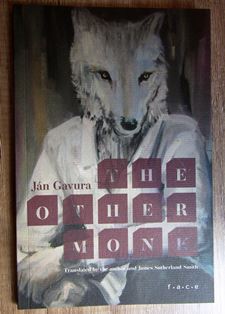|
 "The central tension in Gavura’s poetry is a sense of individual being in striving to be in harmony with other human beings and with nature and yet being aware that they have an existence and identity where his own is not of paramount importance. In this sense each poem is an act of humility before the otherness of nature and individual personalities even inside his own family. In this light Gavura is not afraid to reveal his own weaknesses and faults showing a persona naked in the eyes of the world, at the same time seeking points of contact yet fearing isolation. “An Intake of Breath” closes with a shock of recognition of mutual need not only within a family setting, but within humanity: The hand that stretches out unwittingly, / is a greeting of welcome, a plea of the drowning. This is offset by an anxiety that a person can be alienated even from members of his own family as in the opening poem “Hell” where the protagonist is surprised to find hell sop eaceful. Then he looks to take the hand of his daughter: I found just the face of a dog / with sad or empty eyes." (from the introduction.)
"The central tension in Gavura’s poetry is a sense of individual being in striving to be in harmony with other human beings and with nature and yet being aware that they have an existence and identity where his own is not of paramount importance. In this sense each poem is an act of humility before the otherness of nature and individual personalities even inside his own family. In this light Gavura is not afraid to reveal his own weaknesses and faults showing a persona naked in the eyes of the world, at the same time seeking points of contact yet fearing isolation. “An Intake of Breath” closes with a shock of recognition of mutual need not only within a family setting, but within humanity: The hand that stretches out unwittingly, / is a greeting of welcome, a plea of the drowning. This is offset by an anxiety that a person can be alienated even from members of his own family as in the opening poem “Hell” where the protagonist is surprised to find hell sop eaceful. Then he looks to take the hand of his daughter: I found just the face of a dog / with sad or empty eyes." (from the introduction.)
Hell
I expected a southern gale
and lots of red, blood-red colour.
Lava, flames or smoke of a blaze,
at least in something to match
the prophetic words.
It was all quiet.
People we met
were at peace.
Though when I looked at my daughter
and wanted to hold her firmly by the hand,
I found just the face of a dog
with sad or empty eyes.
|


